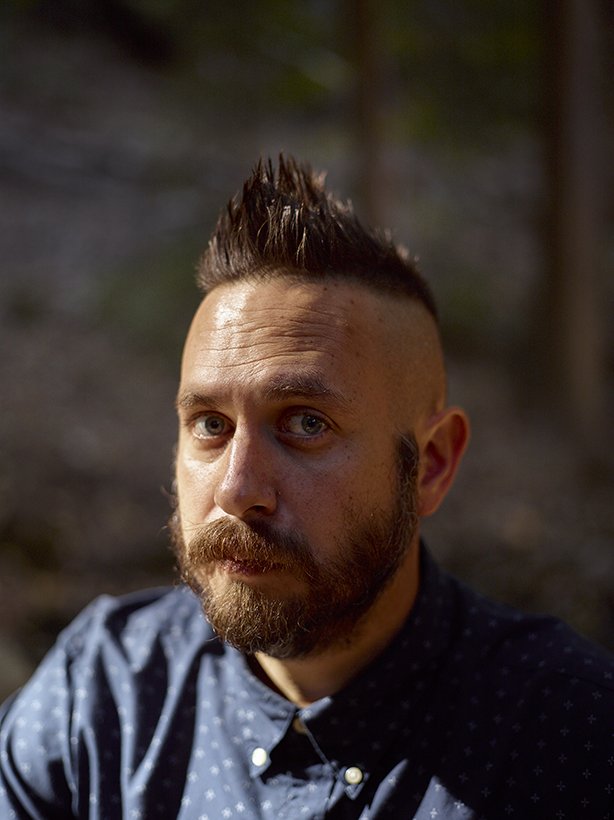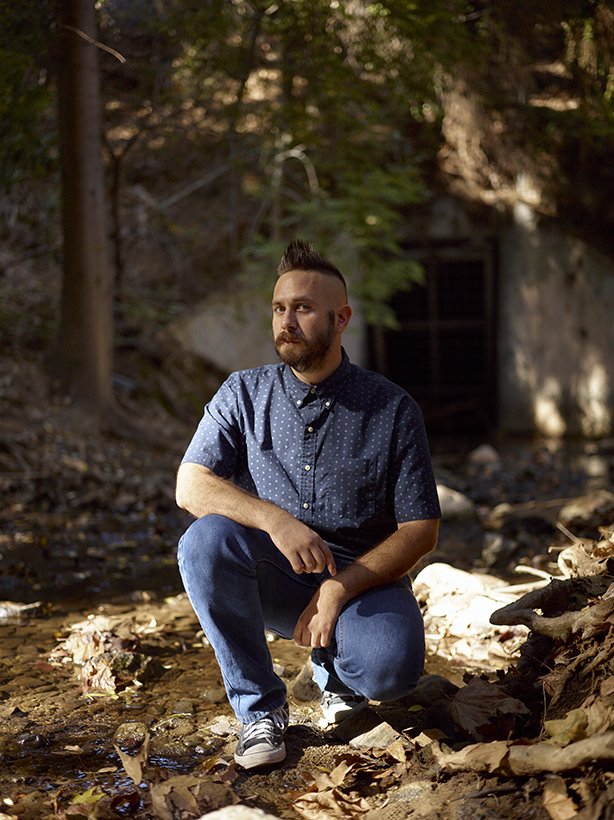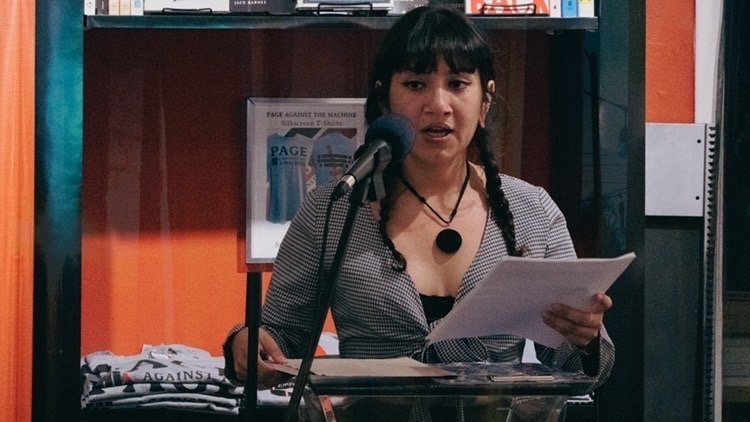5 Questions: Professor of English - Donato Martinez
Donato Martinez was born in in small pueblo, Garcia de la Cadena, Zacatecas, Mexico and immigrated into the USA at six years old. He teaches English Composition, Literature, and Creative Writing at Santa Ana College. He has also taught classes in Chicano Studies. He has been a co-coordinator of the Puente Program for 25 years. He is a poet and writes about his barrio experience, his community, his Chicano culture, bilingual identities, and other complexities of life.
I have to begin this interview by saying you organize some of the most incredible events in unexpected places. You’re a true man of the people and a poet of barrio. You once threw a poetry reading at an auto shop and a hundred people showed up. You really do bring the poetry to the people and the people do come out.
Tell us about how you arrived at this approach and how do you define it?
I have always felt that poetry is for the people. I love to see murals, street art, and graffiti in public places. So much like this art, poetry should be available to every working-class individual. I would love to pack an audience at a barber shop, a restaurant, a factory, the parking lots at a 7- 11 or Northgate Market. So in this case, an opportunity was presented to me by a former student at Sancho’s Garage in Long Beach. We hosted this event twice. We featured music, poetry, social mixing and mingling. The first time we had about 80 people in the audience. The second time we had about 100 people. I met families with children, tattoo artists, barbers, mechanics, construction workers, professors, and students all gathered under one roof to celebrate poetry – Chicano/a poetry. It validated for me that our people, our community is hungry for art. We do not always need to be entertained by novelas, lucha libre, reruns of El Chavo del Ocho, narco movies, carne asada kickbacks, and quinceañeras (although I love these); we too enjoy the art of poetry.
You are a professor at Santa Ana College, it is often said that in teaching we learn the most. What have you learned about the art of writing by teaching it?
These two roles for me are cyclical and they coexist together. I believe teaching informs me of My writing process and writing influences my methods of teaching. They both influence me and I listen intently to what each one says to the other. I experience the anxiety that my students feel in the classroom. I feel a sense of angst and trepidation; I experience the pitfalls and challenges of writing something with substance and creativity. I feel the writer’s block, I feel the frustration, I feel the pressure to finish a piece that I am not ashamed or embarrassed to share. I empathize with my students’ fear when sharing the written word. For example, students conference with each other in writer’s groups in which they read, critique, and discuss each other’s work. One thing I say to them when engaging in the peer editing process – be constructive and show them some “tough love,” but also show some sensitivity and compassion. I am teaching my students to be teachers of the craft of writing by engaging in these exercises. But it is difficult for students to be courageous with their writing.
You are not only a teacher, but a mentor to many of your students. What does it mean for you to pass on this tradition in relation to your practice? Who have been your mentors?
As a mentor/ and teacher, I value and honor this important role. I have a mission and responsibility to my students – I want to teach them how to write and how to gain confidence in their writing skills. I see their nervous eyes and timid faces when paired with other writers in class. I can relate to their lack of confidence. Many of them have fears or anxiety over sharing their essay with a more polished writer. This is the same as me reading a poem in front of strangers – I fear criticism and judgment. This is never easy.
I tell students that it is perfectly fine to write crappy drafts or to have unfinished work, but do do they have something that can be built from there. Is there a possibility of something to develop. Students cannot receive help or grow if they do not attempt something. They have to produce something. So in steps, we conference, discuss ideas, build a skeleton, shape an essay, and then students compose. It is really a beautiful thing to witness the process and see the finished product.
I have also learned that everything I write is not worthy of sharing or even publishing. I have a journal of many unfinished pieces or scribbles of notes that do not go beyond a line or two. I also have many “shitty drafts” tucked somewhere on my computer. These shitty drafts are collecting dust and cobwebs or festering in a pool of murky, green, and unhealthy water. I may never come back to them. But perhaps, there is one magical line, one glimmer of a sentence, one image that feels like a diamond. So perhaps one day it will become part of a gem of a finished piece. I also encourage students to be vulnerable. Writing is a solitary act – one that is very personal, so I emphasize the need to be sensitive to oneself, but to also be courageous and not be afraid. This takes a while, an entire semester at times, but we practice journaling and I discuss the importance of healing through writing.
You are in the process of becoming published by El Martillo Press with your debut collection Touch the Sky. In preparation for this, you have been in communication with your future press mates. What has your experience been like so far?
That is a good question – and I will tell you why – in only a brief time, the experience has been filled with elation. It is an incredible feeling knowing that my publishers – David Romero and Matt Sedillo – have selected and placed me on a team of like-minded writers to carry on this torch, this tradition of poetry by working class individuals that have strong ties to our urban barrios and communities. It is like I have found my long-lost brothers and sisters and after many years, we are now living in the same house together. I feel that we are a team, El Martillo Press, and that we are going to venture out into the world and spread the spirit of love through poetry. El Martillo Press feels like a place that will celebrate and honor the many contributions of our people, sometimes forgotten and ignored. It is a reminder that we have always been here and that we will always be here, in the future. It feels great to be seen. Many of us from El Martillo Press read our poetry to an audience of 150 people at The Cheech Center for Chicano Art and Culture in May. That evening, I shared many new poems from my forthcoming collection of poetry, Touch the Sky, which I have kept this secret under wraps for a long time. It was also an opportunity to share my poetry with my publisher, David Romero and fellow press mates. It was an evening of “coming out” of El Martillo writers and an introduction of us to the Inland Empire. It was a magical and powerful night. In June, we will have some exciting events that will launch the release and introduction of the first five poets of El Martillo Press. We have plans to read at two venues on the same day in July and have plans to read in the bay area this summer. It will be an amazing time. This is only the beginning. I love my publishers and the pressmates that I have shared the stage with. I feel the love when I am surrounded by them.
What advice do you have for aspiring writers?
I do not believe in telling aspiring writers to write every day for a sustained amount of time. Or write like one of your daily chores, at the same time every day. I wish we all had the luxury and ability to do this. But this is not reality. Most writers I know have real jobs, real obligations, families that need their attention, so writing becomes secondary for most people. You do it when the time is right; however, writers should develop a sense of commitment and consistency. I look forward to the silent moments to work on a piece – late into the night, past midnight. There will be random times that I wake up and think of a piece, and I force myself up out of bed to write a few notes, and then I will return to it at 6 am, write for an hour or two, and then remind myself, “oh shit, I have to get ready for work” or “damn, I need to grade these essays.
”I tell students to write/journal as often as they can, every day, even for 15-30 minutes. It does not matter what they write. But to do it for a sustained amount of time. Then I encourage them to practice this art, like practicing how to dribble a basketball with your left hand or like learning how to play guitar. All of these endeavors take practice. So, I tell them to produce work, even if they appear like “shitty first drafts.” Then I tell them to engage in the process of “work” - edit, revise, cut things down, comb through it, throw away the rubbish, add more details, etc. I encourage them to think of their readers and what do they want them to feel when they read their piece. I discuss empathy quite a bit in class. All of us writers or creatives must listen and pay attention to inspiration. It strikes us at bizarre and random moments, and we better capture this moment before it escapes us. Write it down before you forget. Lastly, I tell students and aspiring writers – If you do not write it, no one will read it!
Matt Sedillo has been described as the "best political poet in America" as well as "the poet laureate of the struggle" by academics, poets, and journalists alike. He has appeared on CSPAN and has been featured in the Los Angeles Times, among other publications.











